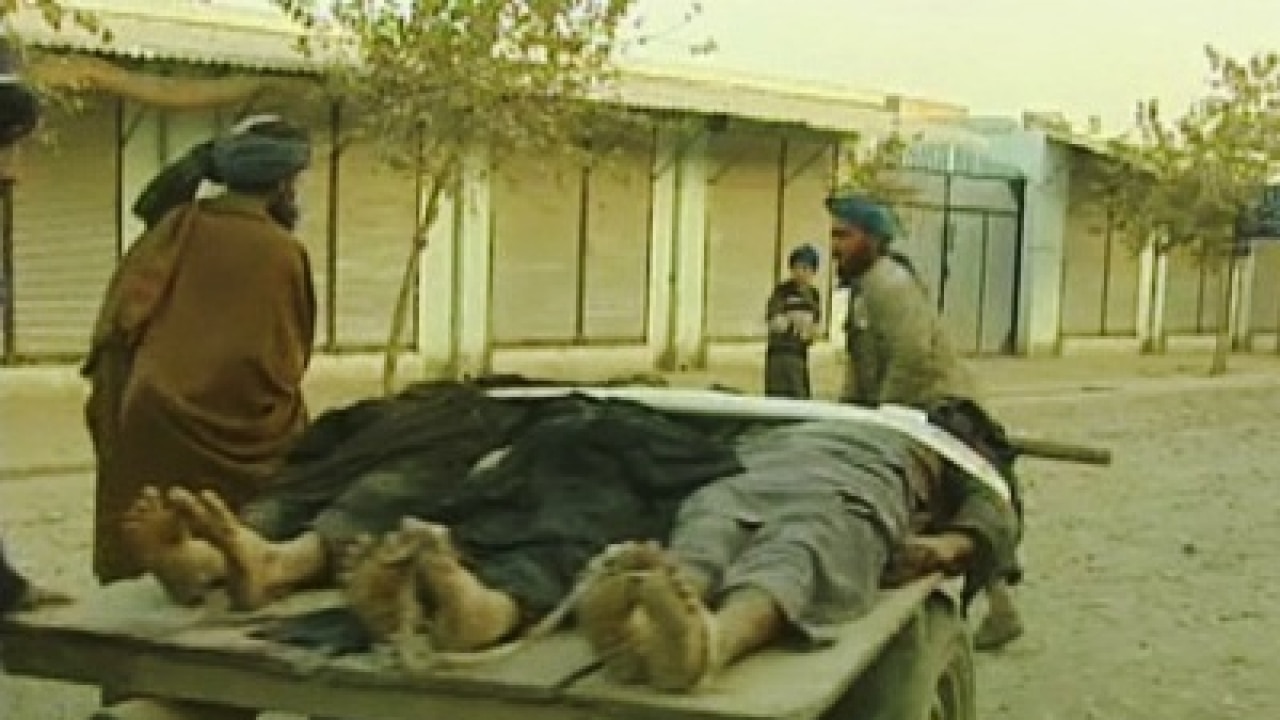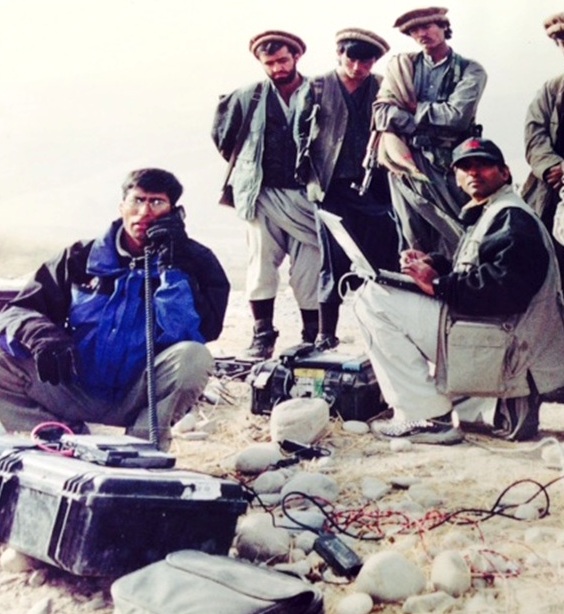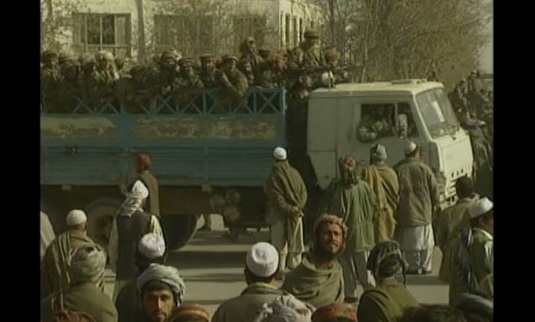
I last left Kunduz in 2010, after I finished producing a documentary about Commander Massoud of Afghanistan, for National Geographic. It was a quiet little town, very different than the one I had known.
The uprooting of Taliban
When I had, on previous occasion, been to Kunduz, I had entered the city in the wee hours of the morning. A gun battle was going on and we were given exclusive access to the story of the Northern Alliance having won the battle for Kunduz. Most of the Taliban had either escaped or were being captured. I clearly remember the sight of a few Taliban being taken for burial, dragged in a hand-pulled cart. I also remember the young boy who had been hit by shrapnel, because one of the aerial attacks took place in a residential neighbourhood as tanks and artillery guns had been tucked away there.
Also, I remember the Taliban from Pakistan being loaded up in a truck. The Afghan government had declared that they were going to let go of all the Afghan Taliban with a small punishment, but that the foreign fighters would be given the strictest possible punishment.
An unfathomable enigma
The fight for Kunduz had been a long wait. Post 9/11, we had been assigned to cover Northern Afghanistan. We had made our way to the North, by going through Russia and Tajikistan. On a daily basis, we had to cover the crisis as it unfolded, whether it was the refugees, the fighting, or the US bombing of the frontlines of the Taliban pin-pointed by laser guided missiles in coordination with the Northern Alliance.
The frontlines collapsed in three stages, as we moved from one to the other. The final wait was in a location called Taloqan where the battle continued on a daily basis. But in the last few days, the action began to happen due to the airlift of Taliban and Al Qaeda fighters. The accusation of the Northern Alliance commanders was that the planes taking off every night were Pakistani military planes with clearance from the CIA, and the Pakistani army had taken clearance based on the fact that they had intelligence units and equipment in Kunduz and they had to be protected as the frontline in Taloqan collapsed. This was vehemently denied by the Pakistan military, but over the years, it has been agreed that on those nights, flights did take off. Who were on those planes will always remain a mystery because the CIA had no presence, neither on the departure end nor at the location where they were landing. It will stay a mystery for many of us who reported the story.

Reporting from the frontlines/Rohit Gandhi
The end of a war
The day Kunduz fell in the North of Afghanistan, there was jubilation that the Taliban's hold in the North was over. The next had to be fought in the South in Kandahar, the headquarters of the Taliban movement and home to the then leadership Mullah Omar.
Kunduz has a large Pashtun population and the presence of Taliban elements did not vanish as Northern Alliance had decided to forgive the local Taliban and set them free to go home. Most of them had fought for years and the end of the war would mean that they could go back to their families and life could start again. But the presence of the US military in the last decade and a half and its decision to not equip the Afghan military with the tools it may require to sustain its fire power has weakened the Afghan forces. A lot of the US equipment was scrapped as the US military exited, instead of giving it to the Afghan forces. The US never justified what was their thinking behind it.
Relapse
The Afghan military has retaken Kunduz in heavy fighting. But as the months go by, the fighting is only going to increase, putting the Afghan forces under tremendous pressure. The players are continuing to increase in the fight. The Russian forces have reached the borders of Afghanistan from the side of Tajikistan, the entry points into Afghanistan, divided by the River Amu that divides Afghanistan with central Asia. Their long-term aim is primarily to protect Tajikistan and any fallout of the fighting in Afghanistan. But as military players increase, there will be a rise in the chances of conflict.
Also to be considered is the reality on the ground of the realignments of the last decade, where the Russians have gone to do business with Pakistan because of India’s decision to go with the Americans to buy their defense equipment. In the 90’s, the Pakistani’s fought against the Russians because they were being backed by the Americans, but today that relationship is also strained because of the US-India strategic partnership. As we speak, the Americans are standing with their ship on the coast of Kerala and are jointly conducting a Naval exercise with India called the Malabar Exercise.

Peace, a distant mirage
The alignments have changed, the fight has changed, but what remains elusive to the Afghans, is the peace they long for. Will the world be able to deliver it that peace? This is something the world has to decide. The Afghans themselves, after decades of turmoil, have been weakened and continue to rely on foreign funding, as their economy hasn’t been able to realise its dreams. The more the fighting, the more they will go back to pre-2001 days. The result will finally be the same - fighting, refugees and trillions of dollars of money made by people and given to the government in the form of taxes, going to the dustbin.
Kunduz may just be a microcosm, but it represents a much larger failure in how we plan, strategise and execute military operations in foreign lands.
The author is a former conflict resolution journalist with years of experience in Afghanistan and Iraq, covering war zones and global issues. He currently heads Zee Media Corporation Limited's latest venture, Zee English News, a Global English News Channel with the vision of taking on the issues of the world with a South Asian perspective.